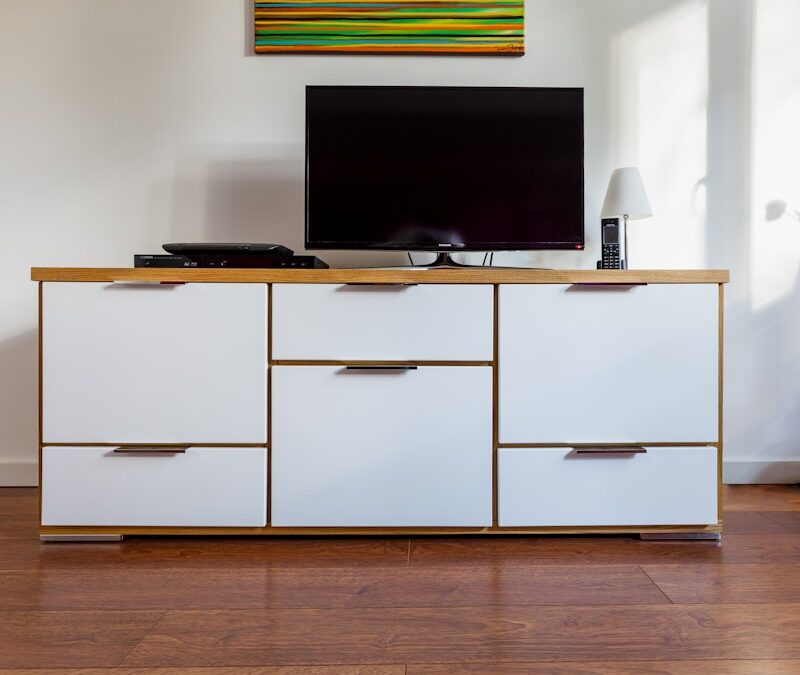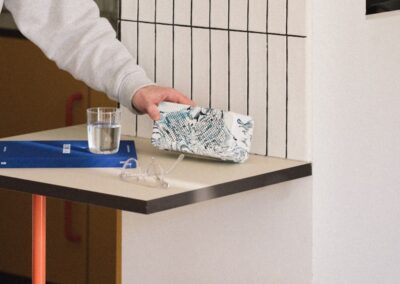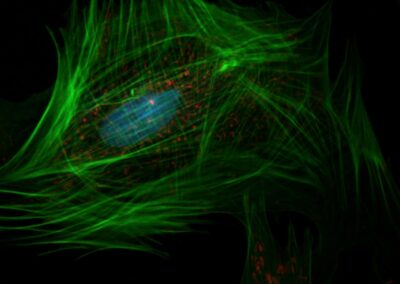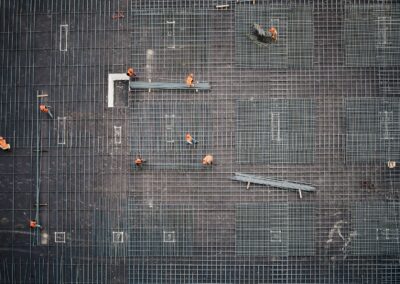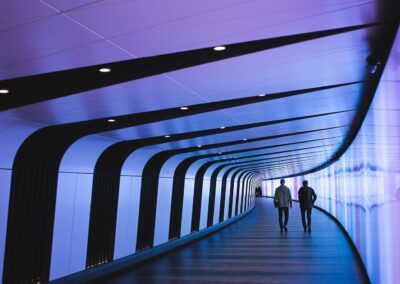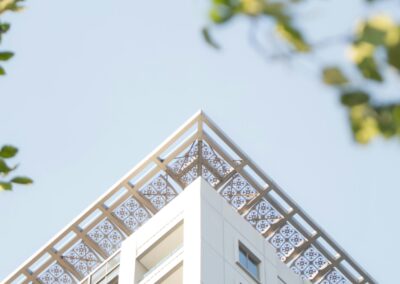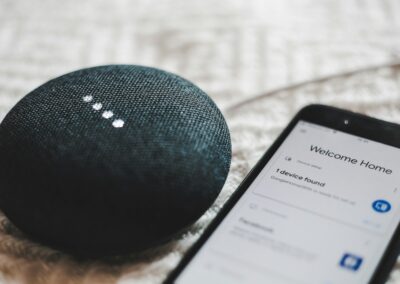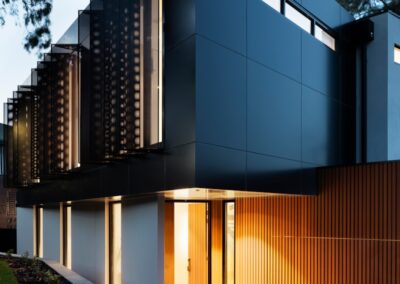Building a Sustainable Future
Integrating Sustainability into Modern Homes
The importance of sustainable homes in fostering a culture of environmental stewardship and responsibility among residents cannot be overstated. In regions like Saudi Arabia and the UAE, where rapid urban development and modernization are prominent, the integration of sustainability into housing projects is becoming increasingly crucial. Sustainable homes utilize eco-friendly building materials, energy-efficient systems, and innovative technologies to minimize their environmental footprint and promote greener living.
In Saudi Arabia, initiatives such as the King Salman Energy Park (SPARK) exemplify the country’s commitment to sustainability. SPARK integrates advanced sustainable building practices, including the use of renewable energy sources like solar panels and energy-efficient building designs, to create an environmentally friendly living and working environment. This focus on sustainability not only reduces energy consumption but also educates residents on the importance of environmental stewardship, fostering a culture of responsibility.
Dubai is also making significant strides in sustainable housing with its ambitious plans for green buildings. The Dubai Green Building Regulations mandate that all new buildings meet stringent sustainability criteria, including energy and water efficiency, waste reduction, and the use of sustainable materials. By implementing these regulations, Dubai aims to reduce its carbon footprint and promote a culture of environmental responsibility among its residents. This initiative highlights the critical role of government policy in driving sustainable practices and encouraging eco-friendly living.
Educational Impact of Sustainable Living
Sustainable homes do more than just conserve resources; they play a pivotal role in educating residents about the benefits and importance of environmental stewardship. Through sustainable living, residents gain firsthand experience with eco-friendly practices, which can lead to broader societal changes. For instance, the use of smart home technologies in sustainable homes allows residents to monitor their energy consumption and make informed decisions about their resource use.
In Riyadh, the Al Widyan project is an excellent example of how sustainable housing can educate and influence residents. This mixed-use development incorporates sustainable practices such as rainwater harvesting, solar energy, and green spaces to create a self-sustaining community. Residents of Al Widyan are encouraged to participate in environmental programs and initiatives, promoting a deeper understanding of sustainability and fostering a sense of community responsibility.
Similarly, in the UAE, Masdar City stands out as a model for sustainable urban development. Masdar City integrates cutting-edge sustainable technologies and practices, including energy-efficient buildings, renewable energy sources, and sustainable transportation options. The city serves as a living laboratory for sustainability, providing residents with opportunities to engage with and learn about sustainable living. This hands-on experience helps cultivate a culture of environmental stewardship, where residents are more likely to adopt and advocate for sustainable practices.
Business Opportunities in Sustainable Housing
The rise of sustainable homes presents significant business opportunities for entrepreneurs and companies in the construction and real estate sectors. As demand for eco-friendly housing grows, businesses that specialize in sustainable building materials, energy-efficient technologies, and green construction practices are well-positioned to thrive. In Saudi Arabia and the UAE, the push for sustainable development creates a favorable environment for innovation and investment in green technologies.
Companies that embrace sustainability can differentiate themselves in the competitive real estate market by offering eco-friendly housing options that appeal to environmentally conscious consumers. For instance, real estate developers in Dubai are increasingly incorporating sustainability into their projects to attract buyers who prioritize green living. This trend not only benefits the environment but also enhances the marketability and value of properties.
Furthermore, the integration of advanced technologies such as the Internet of Things (IoT) and artificial intelligence (AI) into sustainable homes can create additional business opportunities. These technologies enable smart home systems that optimize energy use, monitor environmental conditions, and provide residents with real-time data on their resource consumption. By developing and implementing these technologies, businesses can contribute to the growth of sustainable housing and promote a culture of environmental stewardship.
Driving Societal Change Through Sustainable Housing
Community Engagement and Environmental Responsibility
Sustainable homes have the potential to drive significant societal change by fostering a sense of environmental responsibility and community engagement. When residents live in homes designed with sustainability in mind, they are more likely to adopt eco-friendly habits and participate in community efforts to protect the environment. This collective approach to sustainability can lead to broader environmental benefits and a stronger sense of community.
In Saudi Arabia, the Red Sea Project is a prime example of how sustainable housing can enhance community engagement. This ambitious development focuses on environmental preservation and sustainable tourism, incorporating eco-friendly practices in all aspects of the project. By involving residents and visitors in conservation efforts, the Red Sea Project promotes environmental stewardship and encourages a collaborative approach to sustainability.
Dubai’s Sustainable City also exemplifies the role of sustainable housing in fostering community engagement. The city features numerous green spaces, community gardens, and sustainable infrastructure, creating an environment where residents can connect with nature and each other. Community programs and events focused on sustainability further reinforce the importance of environmental responsibility, making it an integral part of daily life.
Long-Term Benefits of Sustainable Living
The long-term benefits of sustainable living extend beyond environmental conservation to include economic and social advantages. Sustainable homes are often more energy-efficient, resulting in lower utility bills and reduced maintenance costs for residents. Additionally, the use of durable, eco-friendly building materials can enhance the longevity and resilience of homes, providing long-term value for homeowners.
In Riyadh, the Qiddiya project illustrates the economic benefits of sustainable housing. This entertainment and cultural destination incorporates sustainable design principles to minimize its environmental impact and reduce operational costs. By creating a self-sustaining community, Qiddiya aims to attract tourists and residents who value sustainability, driving economic growth and development in the region.
Socially, sustainable homes contribute to healthier living environments by reducing exposure to pollutants and promoting physical and mental well-being. Green spaces, natural light, and improved air quality are all features of sustainable housing that enhance the quality of life for residents. In the UAE, initiatives like the Zayed Sustainability Prize encourage the development of sustainable projects that prioritize health and well-being, demonstrating the social benefits of green living.
Conclusion: The Future of Sustainable Homes
The integration of sustainability into modern homes is essential for fostering a culture of environmental stewardship and responsibility. In regions like Saudi Arabia and the UAE, where urban development is rapidly advancing, sustainable housing projects play a crucial role in promoting eco-friendly living and educating residents about the importance of environmental conservation. By embracing sustainable practices, these regions can lead the way in creating more resilient and inclusive communities.
The success of sustainable homes depends on continued investment in green technologies, community engagement, and supportive government policies. As businesses and entrepreneurs seize the opportunities presented by the growing demand for eco-friendly housing, the potential for sustainable development will only expand. Ultimately, sustainable homes are not just about reducing environmental impact; they are about building a better, more sustainable future for all.
#SustainableHomes #EnvironmentalStewardship #GreenBuilding #EcoFriendlyLiving #SaudiArabia #UAE #Riyadh #Dubai #SustainableTechnology #ModernArchitecture #BusinessSuccess #Leadership #ManagementSkills #ProjectManagement

